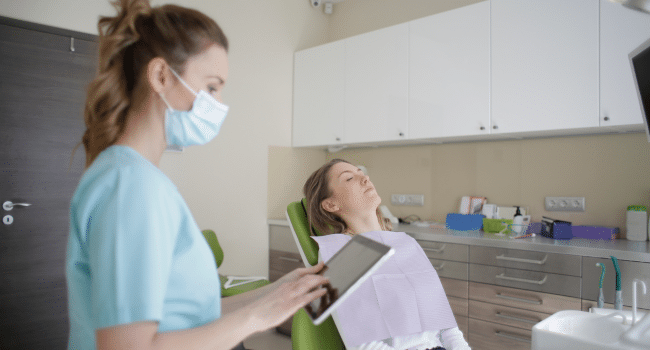Table of Contents
Introduction
Substance use disorders (SUDs) have plagued communities across the globe for decades, affecting millions of individuals and families. While traditional abstinence-based recovery methods have helped some, they are not always enough especially in the face of the opioid epidemic. Medication-Assisted Treatment (MAT) has emerged as a scientifically-backed, effective approach to treating opioid and alcohol use disorders. Combining behavioral therapy with FDA approved medications, MAT offers a comprehensive evidence-based path to recovery.
In this article we explore what MAT is how it works, its benefits the myths surrounding it and why it’s becoming a vital part of modern addiction treatment strategies.
What Is Medication Assisted Treatment?
Medication Assisted Treatment (MAT) is the use of medications, in combination with counseling and behavioral therapies, to treat substance use disorders and sustain recovery. This approach is primarily used for opioid addiction including heroin and prescription painkillers as well as alcohol use disorder.
MAT is not about substituting one drug for another. Instead, it’s about using regulated, medically supervised medications to reduce cravings and withdrawal symptoms, allowing individuals to focus on their recovery journey.
Common Medications Used in MAT
Buprenorphine A partial opioid agonist that helps reduce cravings and withdrawal symptoms.
Methadone A long-acting opioid agonist that prevents withdrawal without producing a high.
Naltrexone An opioid antagonist that blocks the effects of opioids and alcohol.
Disulfiram (Antabuse) Used for alcohol use disorder, causing unpleasant effects when alcohol is consumed.
Acamprosate (Campral) Helps maintain abstinence by stabilizing brain chemistry.
How MAT Works
MAT works by targeting the brain’s reward system. Substances like opioids and alcohol disrupt normal brain function, causing dependence and addiction. MAT medications restore chemical balance without inducing the euphoric highs associated with drug use, and medication assisted treatment online makes these services more accessible to individuals who cannot attend in person.
In addition to medication, counseling and behavioral therapies play a crucial role in helping patients understand their addiction, build coping strategies, and develop healthier life habits. When combined, medication and therapy provide a holistic approach to long-term recovery.
Benefits of Medication Assisted Treatment
1. Improved Patient Survival
Research shows that MAT significantly reduces the risk of fatal overdoses. According to the National Institute on Drug Abuse (NIDA), individuals receiving MAT are 50% less likely to die from opioid overdose compared to those who are untreated.
2. Better Retention in Treatment
Patients on MAT are more likely to stay in recovery programs. Retention is a key factor in long-term recovery, and MAT helps reduce drop-out rates by making the early phases of treatment more manageable.
3. Decreased Illicit Drug Use
MAT reduces the use of illicit opioids and alcohol by controlling withdrawal and minimizing cravings, making relapse less likely.
4. Improved Social Functioning
Patients in MAT programs often experience improvements in employment status, family relationships, and overall quality of life.
5. Reduced Criminal Activity
By decreasing the dependence on illegal substances, MAT helps reduce drug-related criminal behavior and the associated legal consequences.
Addressing Myths and Misconceptions
Despite its proven effectiveness, MAT is still surrounded by misconceptions that deter many from seeking or recommending it.
Myth 1 It’s Just Substituting One Drug for Another
Reality: MAT uses medically approved, controlled doses to help stabilize brain function. These medications don’t produce the euphoric highs associated with drug abuse and are designed to support recovery.
Myth 2 You’re Not Really Clean If You’re on MAT
Reality: Recovery is not defined solely by abstinence, but by improvement in physical, emotional, and social well-being. MAT is a valid and life-saving form of recovery.
Myth 3 MAT Is Only for Severe Cases
Reality: MAT can be used at various stages of addiction. Early intervention with MAT can prevent the condition from worsening and improve long-term outcomes.
Who Can Benefit From MAT?
Medication-Assisted Treatment is suitable for:
- Individuals with opioid use disorder
- People recovering from alcohol dependence
- Patients who have relapsed multiple times
- Those experiencing severe withdrawal symptoms
- Pregnant women addicted to opioids (under medical supervision)
It is essential to note that MAT should always be prescribed and monitored by qualified healthcare providers. Individualized treatment plans ensure the best outcomes.
MAT and the Opioid Epidemic
The opioid crisis has become one of the most pressing public health issues in the United States. According to the CDC, over 100,000 people died from drug overdoses in 2023, with opioids being a leading cause. MAT has been identified as one of the most effective strategies to combat this epidemic.
State and federal governments are increasingly supporting MAT initiatives, including integrating it into correctional facilities, expanding Medicaid coverage, and launching awareness campaigns to promote its benefits.
Finding the Right Support in Recovery
Addiction can feel overwhelming, but effective, compassionate treatment is available. White Oak Recovery Center provides comprehensive care tailored to individual needs, including Medication-Assisted Treatment (MAT). Their evidence-based approach combines medical support with therapy to help clients regain control and build a stable future. Learning more about MAT can empower you or a loved one to take the next step toward lasting recovery.
Incorporating MAT into Comprehensive Care
Successful recovery requires more than just medication. MAT works best when part of a comprehensive treatment program that includes:
- Behavioral therapy
- Peer support groups
- Mental health services
- Social support (housing, employment, etc.)
- Aftercare and relapse prevention
This integrated approach ensures that all aspects of a person’s recovery—physical, emotional, and socialare addressed.
Final Thoughts Why MAT Matters
Medication-Assisted Treatment offers hope, healing, and a proven path forward for individuals struggling with substance use disorders. Far from being a crutch or a shortcut, MAT is a scientifically validated, holistic approach to addiction recovery. As we continue to battle the opioid and alcohol crises, embracing MAT can lead to stronger communities, healthier families, and saved lives.
If you or someone you love is battling addiction, know that help is available. Reach out to a licensed treatment provider or healthcare professional to explore if MAT is the right option for your recovery journey.
